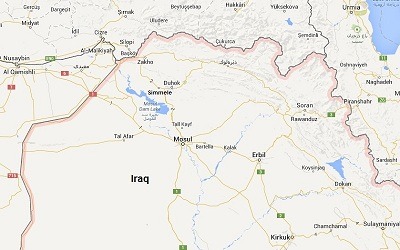
Remembering the 1933 Massacre of Assyrians in Iraq
AINA – Abdulmesih BarAbraham – 7/8/2020
(AINA) — On the 87th anniversary of the massacre of Simmele, where the Iraqi Army systematically massacred the inhabitants of more than one hundred Assyrian villages in northern Iraq, Joseph Yacoub, honorary Professor of political science at the Catholic University of Lyon, published an article in French titled Le drame des Assyro-Chaldéens ne commence pas aujourd’hui (the Drama of the Assyro-Chaldeans Does Not Begin Today). The article appeared in the online edition of the French newspaper Le Figaro, reminding of the less-known massacre of Simmele in the year 1933 in Iraq. According to various sources, as many as 6,000 innocent Assyrians were killed, and tens of thousands displaced.
This massacre marks a tragic milestone in the history of the Assyrians and resulted in the exodus of tens of thousands Assyrians into Syria, which at the time was under the French mandate. The Assyrians originated from the Hakkari mountains, in southeast Turkey, and were expelled by the Turkish state during the genocide of 1915 and pushed south into Iraq, which would become a British mandate.
Professor Yacoub reports that the integration of the Assyrian from Hakkari into Iraq under the protection of the British mandate, which was granted by the League of Nations in 1920, “encountered difficulties, especially with respect to maintaining their traditional status to which they owed the sustainability of their existence.” The issue became more complicated in September 1929 when the British government announced its intent to prematurely end the mandate in 1932. “This rapid development gave rise to strong concerns among the Assyrians,” said Professor Yacoub, “who sent several petitions to the League of Nations, fearing for their safety, and worried about equal treatment and freedom of belief as Christians.”
Despite a declaration signed before the League of Nations on May 30, 1932, Baghdad refused to grant Assyrians any autonomy as a minority and opposed their reunification as a homogeneous ethnic group. “In reality, the Assyrians were perceived as foreigners and the new Iraq, which wrongly regarded them a danger to its national cohesion,” said Professor Yacoub.
Related: The Assyrian Genocide
After the formal end of the British mandate, the Kingdom of Iraq became independent on October 3, 1932, and was admitted to the League of Nations.
Professor Yacoub goes on and reports on the chain of critical events, culminating in the Simmele Massacre of August 7, 1933. He cites several British and French reports about the massacre.
The London correspondent of the French newspaper Le Temps, Robert Cru, wrote on August 8, 1933: “Grim revelations have just been added to what we already knew about the atrocities which took place in the north of Iraq. A British official on tour found 315 Assyrians slaughtered.”
The government of King Faisal I, while deploring these incidents, “gave its word of honor that such acts of savagery would not be repeated, but one year of advancement was granted to all officers who had taken part in these operations, and Colonel Békir Sidqi, in charge of the operation, was promoted to general” (Le Temps, Paris, August 18).
Professor Yacoub also refers to an article by the correspondent of Le Figaro in London, published on August 20 in which he writes “England having abandoned its mandate over Iraq, which was recognized as an independent nation and welcomed into the League of Nations, its result was not long to wait. The Muslims of Mesopotamia attacked the small minorities in their territory. Recently Assyrian tribes have been massacred.”
According to Professor Yacoub, the massacre of Simmele aroused many echoes in Europe and was widely covered by the press. French and British diplomatic as well as military archives contain reports on the responsibility of the Iraqi authorities and its army in the massacres. Most reports were kept “top secret” and released decades later. As an example, Professor Yacoub points to photos the British Royal Air Force (RAF) took from the aerial of the burnt and demolished villages. Labelled top secret due to “overriding state interests,” the authorities did not disclose them at the time. It was in 1984 when these images became accessible for research.
On the 85th anniversary of the Simmele Massacre, the Assyrian Policy Institute (API) published a comprehensive report on the Simmele Massacre, demanding from the Iraqi Government formal recognition of the massacre and other genocidal campaigns targeting Assyrians in Iraq. API proposed also the allocation of funds for a lasting memorial honoring the victims of Simmele at the massacre site. In addition, API criticized attempts by the Kurdistan Regional Government (KRG) to politicize the massacre for the benefit of the Kurdish nationalist agenda.
The issue of recognition and of a proper memorial at the Simmele site is on ongoing theme on the agenda of Assyrian organizations. Visiting Iraq in February 2020, a delegation of the Assyrian Democratic Organization (ADO) from Syria met with Masoud Barzani, former President of the Kurdish Regional Government, in Erbil and addressed the issue of erecting of a monument in the village of Simmele for the martyrs who were killed in the Simmele massacre of 1933.
© Assyrian International News Agency.

